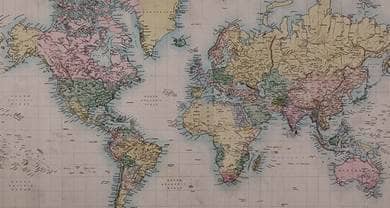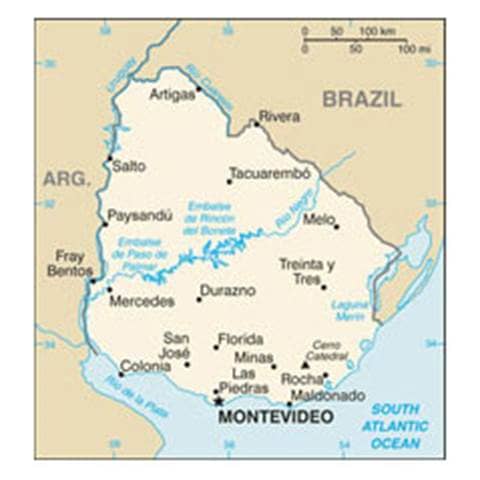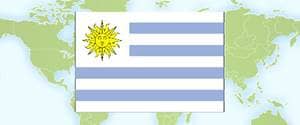- Trending:
- Forgiveness
- |
- Resurrection
- |
- Joy
- |
- Trump
- |
- Kamala Harris
- |
- Supreme Court

RELIGION LIBRARY
Uruguay

The country has an area of 68,039 square miles and a population of 3.2 million (according to the 2004 census). The most recent (2007) statistics on religious preference from the National Bureau of Statistics (NBS) indicate that 45.1 percent identify themselves as Roman Catholics, 10.5 percent as non-Catholic Christians, 0.7 percent as Afro-Umbandistas, 0.4 percent as Jewish, and 27.8 percent believe in God but do not claim a religious affiliation. Some religious groups dispute the accuracy of the NBS statistics, and other groups are not reflected in the survey.
Mainstream Protestants include primarily Anglicans, Methodists, Lutherans, and Baptists. Other groups include evangelicals, Pentecostals, Mennonites, Eastern Orthodox, Christian Scientists, Salvation Army, and Jehovah's Witnesses. Evangelicals estimate that they have 200,000 followers (6 percent of the population), Afro-Umbandistas at least 100,000 (3 percent), The Church of Jesus Christ of Latter-day Saints (Mormons) 100,000 members (3 percent), and the Jewish community approximately 25,000 (0.7 percent). The estimated 4,000 Baha'is are concentrated primarily in Montevideo. Approximately 850 families practice Buddhism. The Unification Church is active and has major property holdings, including a daily newspaper. An Islamic cultural representative estimated that there are 300 to 400 Muslims. In 2008 the Egyptian Islamic Center in Montevideo, which is supported by the Egyptian Embassy, was inaugurated as the first mosque in the country. Muslims also gather to pray at the Uruguay Islamic Center in Canelones.
| Population | Population (2009 est.) 3,494,382 |
| Religious Demographics | Roman Catholic 47.1%, non-Catholic Christians 11.1%, nondenominational 23.2%, Jewish 0.3%, Atheist or Agnostic 17.2%, other 1.1% (2006) |
| Ethnic Groups | Ethnic Groups white 88%, mestizo 8%, black 4%, Amerindian (practically nonexistent) |
| Languages | Languages Spanish, Portunol, or Brazilero (Portuguese-Spanish mix on the Brazilian frontier) |
| Country Flag |  |










